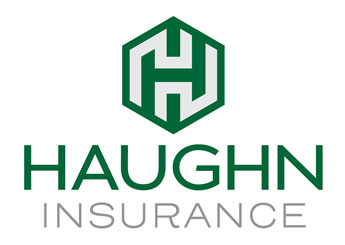
Businesses need to know how to reduce pollution and enact a plan to prevent issues from arising within their business. Pollution drastically impacts the environment; unfortunately, businesses are the main contributors. However, today’s technology offers many ways for companies to reduce carbon emissions and give to environmental efforts. Even more importantly, industry leaders have the power to prioritize a healthy planet and a corporate culture that encourages sustainable innovation.
How to Reduce Pollution
With the proper education, planning, and pollution liability coverage, enterprises can reduce pollution and the many issues it causes.
What Is Pollution Liability Insurance?
While general liability has a lot to offer, it has many specific exclusions, so companies in certain industries must go elsewhere for coverage. For example, transportation liability coverage protects companies from liability should corporate vehicles cause injury or property damage. Similarly, contractors professional liability protects freelancers from losses or errors.
Pollution liability policies cover damage caused by pollutants’ unanticipated release. For instance, it can protect companies if there’s an accidental spill or ineffective storage of waste materials. Good policies cover the following costs:
- Business Interruption
- Clean Up
- Property Damage
- Bodily Injury
What Are the Main Contributors to Pollution?
Electrical power and transportation are by far the biggest producers of air pollution. Since companies are the dominant consumers of power and drive the need for transportation via employee commuting, they’re in the perfect position to reduce pollution through policy change.
What Are the Impacts of Pollution?
Air pollution significantly impacts the public’s health by increasing the risk of heart disease, respiratory infections, and lung cancer. Contaminated drinking water also poses a severe threat, especially for children and pregnant women. Likewise, high levels of lead in the water supply can interfere with blood formation, damage internal organs (including the brain), and even cause death.
Higher rates of health problems mean a lower quality of life for the population and more spending on medical care. Since you can’t restrict water and air to one area, local issues can become regional concerns over time.
How Can Companies Reduce Their Environmental Impact?
The first step to change is recognizing your part in pollution. Companies should audit their processes to identify environmentally harmful operations, then work to replace them. To do so, businesses may have to switch suppliers, upgrade their equipment or rework an entire process.
Significant changes take time and money, so businesses should plan sustainability in the long term. In the meantime, there are plenty of smaller steps brands can take:
- Recycling Office Supplies
- Moving to Remote Work
- Increasing Energy Efficiency
- Investing in Green Energy Sources
- Choosing Biodegradable and Sustainably Sourced Materials
- Opting for Green Infrastructure and Architecture
Why Should Businesses Get Pollution Liability Insurance?
Even when you have systems in place to prevent pollution, there’s a chance that something can fail. Pollution liability policies are the backup plan that can save your company from losing money. Without it, you may be unable to recover, putting your reputation and the livelihoods of your employees in jeopardy.
About Haughn & Associates
Founded by Michael Haughn in 1986, Haughn & Associates is a full-service, family-owned, independent insurance agency based out of Dublin, Ohio. H&A strives to provide the best possible price and unique insurance solutions across a myriad of industries, including construction, IT, Habitation & Commercial Property, Agriculture, and Engineering. Devoted to providing the best of business insurance, life and disability insurance, personal insurance, employee benefits, and bonds, H&A is proof that success lies in long-standing client relations and satisfaction. To learn more about how H&A can be of service to you, contact us at (877) 802-2278.

